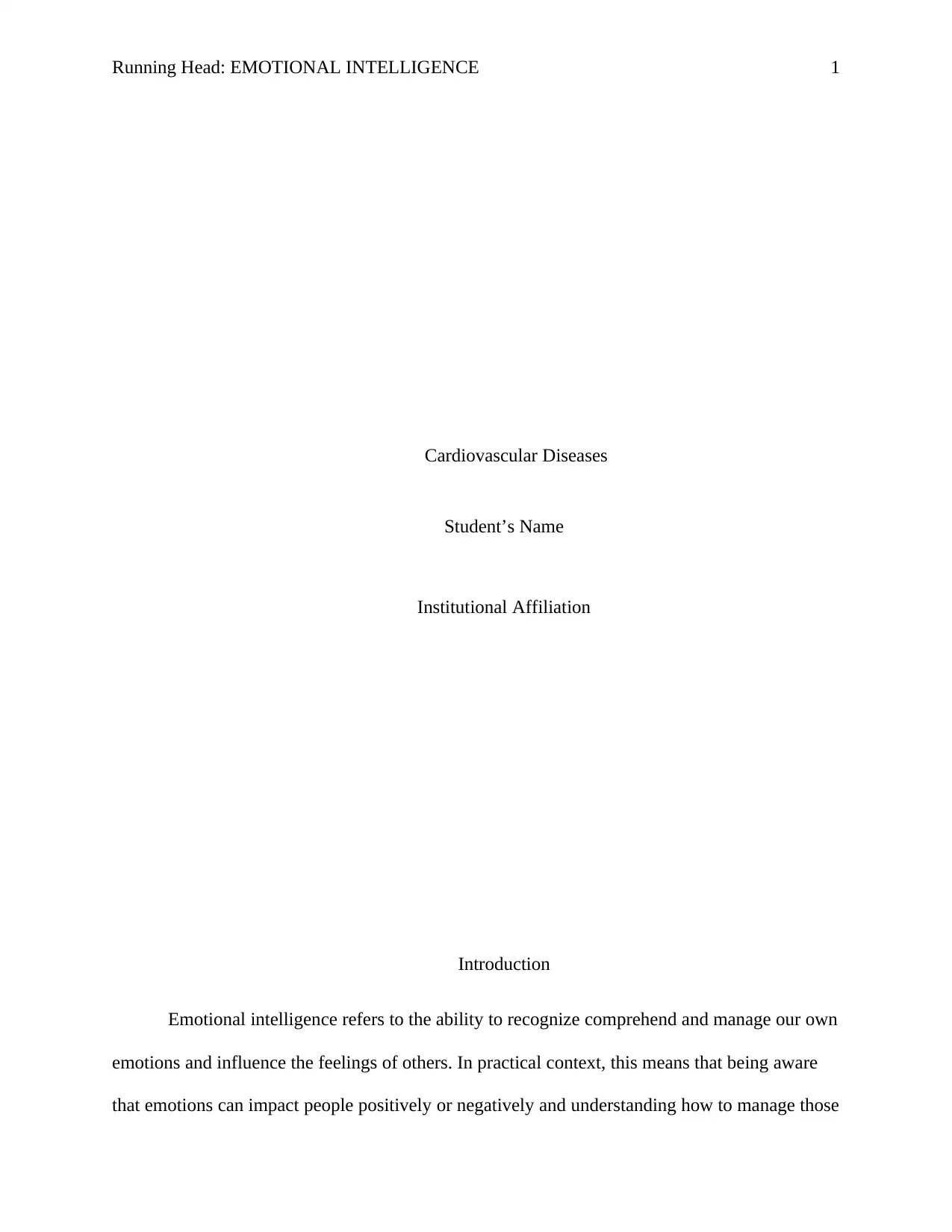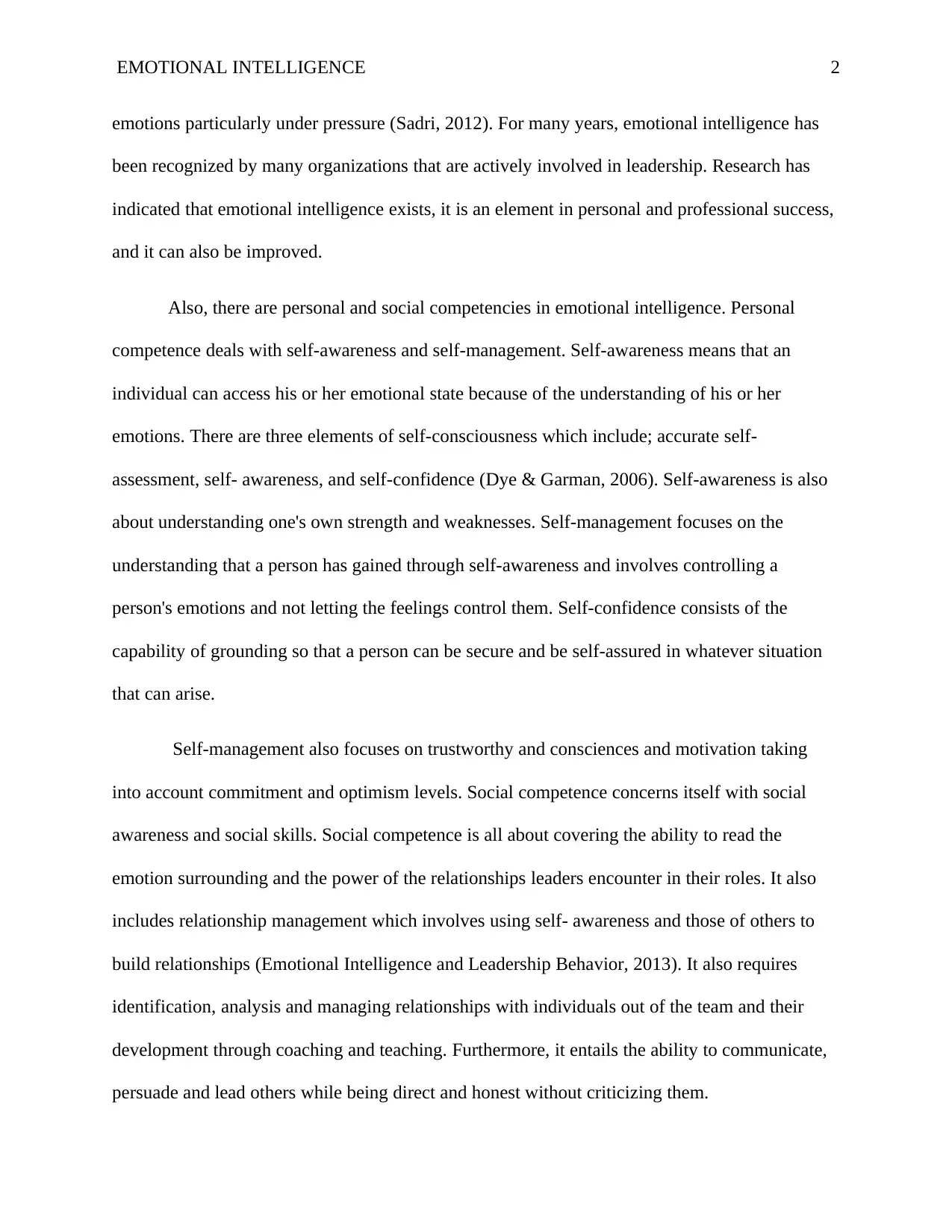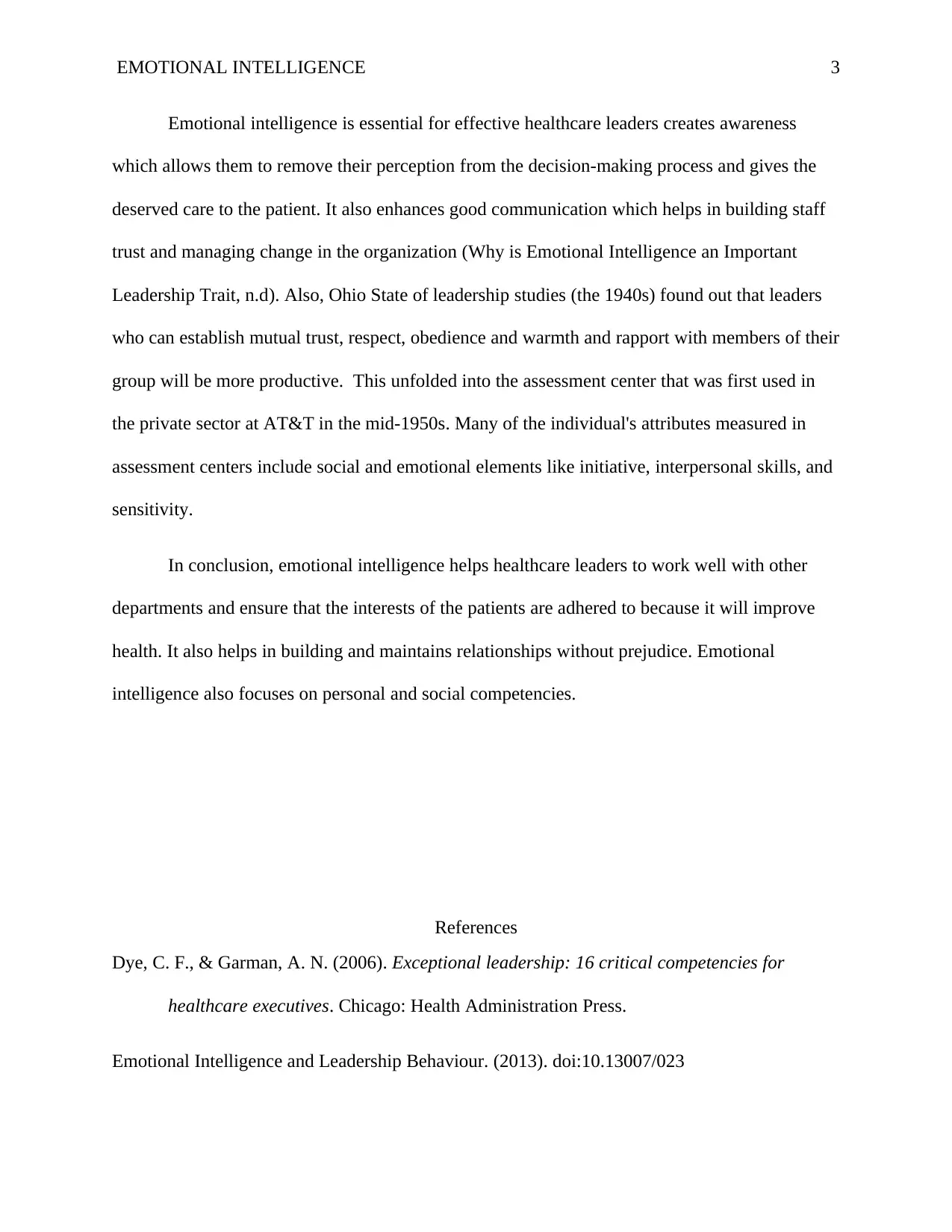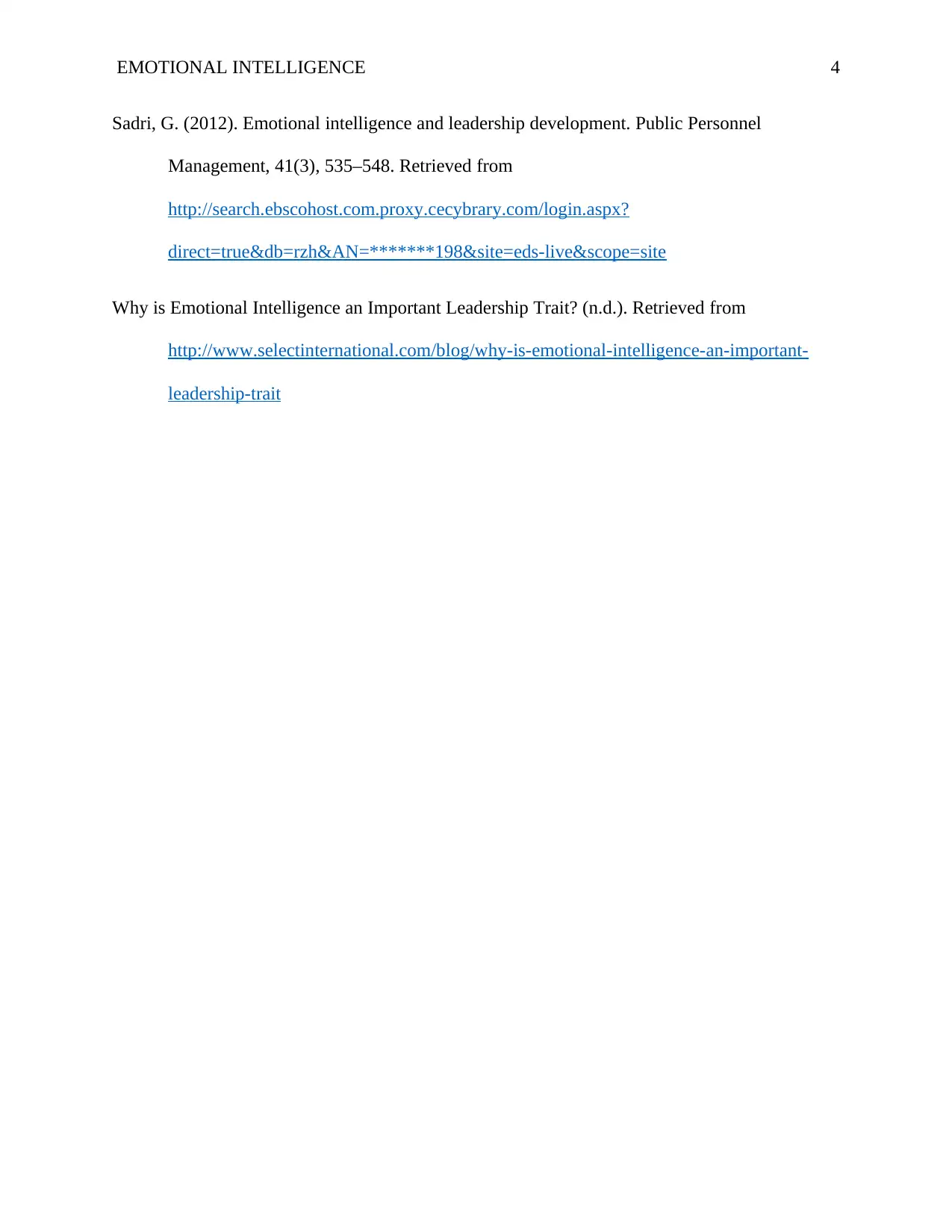Emotional Intelligence and Leadership in Cardiovascular Diseases
VerifiedAdded on 2023/06/05
|4
|680
|177
Essay
AI Summary
This essay discusses the significance of emotional intelligence in leadership, especially within the healthcare sector, and its impact on cardiovascular diseases. It defines emotional intelligence as the ability to recognize, understand, and manage emotions, highlighting its importance in personal and professional success. The essay distinguishes between personal and social competencies within emotional intelligence, detailing self-awareness, self-management, social awareness, and social skills. It emphasizes the role of emotional intelligence in fostering effective communication, building trust, and managing change in healthcare organizations. The conclusion underscores the importance of emotional intelligence for healthcare leaders to work collaboratively, prioritize patient interests, and maintain positive relationships, ultimately improving health outcomes. Desklib provides a platform for students to access this and other solved assignments to aid in their studies.
1 out of 4











![[object Object]](/_next/static/media/star-bottom.7253800d.svg)